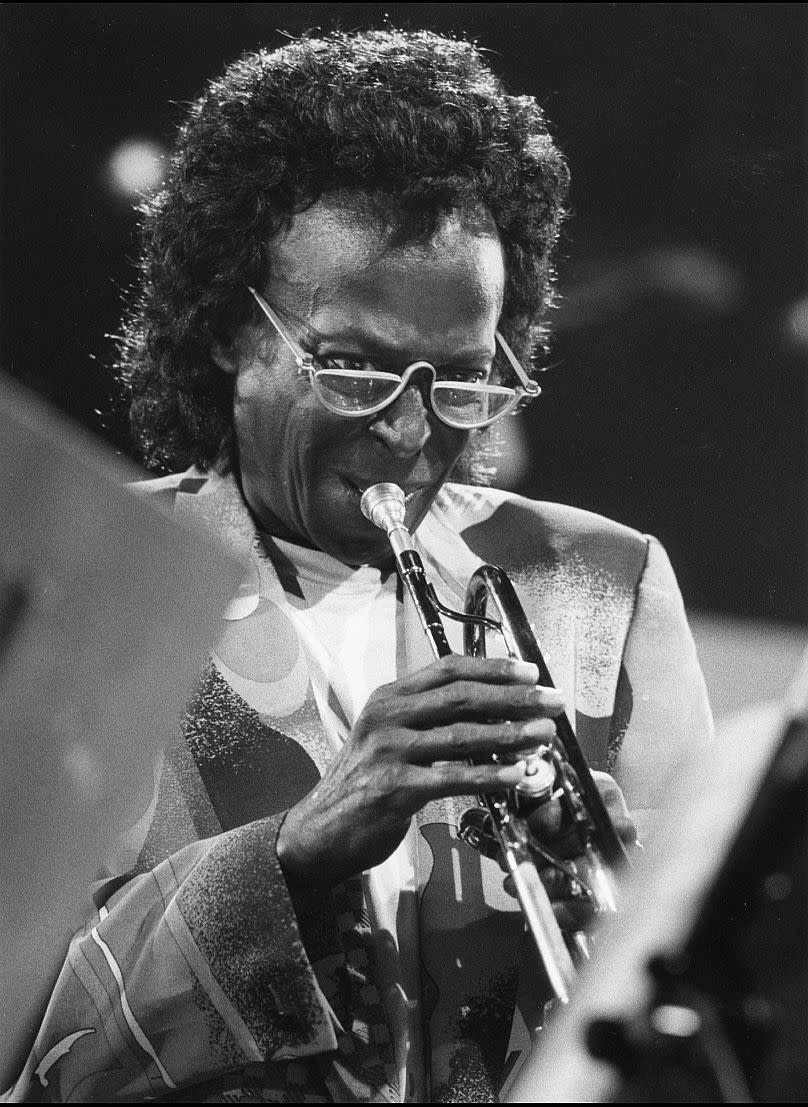Why we aren't listening to Apple's best 100 albums

Apple has revealed its top 100 albums of all time and some of the entries might surprise you. Some people on the internet aren’t happy about it. But we’re not sure about a couple choices…
Sorry, let’s stop these shenanigans right there.
We’ve had enough of these endless desperate ploys for internet engagement. It’s not even the end of the year and we’re dealing with half-baked top 100 lists that are designed with one thing in mind, to drive online engagement due to the inexplicable decision making behind them.
Fine, I’ll engage with it.
Primavera Sound in Barcelona kicks off Spain's summer of music
Ken Loach and Mike Leigh resign as London cinema patrons over Israeli film festival
The top 100 was created by Apple in consultation with artists like Pharrell Williams, Nile Rogers, and Maggie Rogers to decide on “the records that have shaped the world we live and listen in today.”
In the number one spot is Lauryn Hill with her 1998 classic ‘The Miseducation of Lauryn Hill’. It’s a pretty fair choice for the top spot as it’s a universally beloved album that provided the world with Hill’s unique take on the RnB genre with her characteristic honesty.
Putting Hill at the top spot also gave Apple the chance to tell her in person and get a pull-quote for their press release. Not something they could have done if they went for the number two placing Michael Jackson.

The rest of the top 10 is also full of some pretty understandable choices. After Michael Jackson’s ‘Thriller’, the list includes The Beatles, Prince, Stevie Wonder, Kendrick Lamar, Amy Winehouse, Nirvana, and Beyoncé.
All major artists, all major albums. Sure you could make arguments that the top 10 ought to include something from Pink Floyd or Madonna, but each of these artists are clearly deserving to be included among the highest echelon.
Aside from one.
In the number five spot on the list of best albums of all time is Frank Ocean’s ‘Blonde’. Don’t get me wrong, Ocean’s 2016 album is excellent. But best of all time… really? It wasn’t even the best album released that year.
It’s the choice of ‘Blonde’ that gives away the problem with any kind of list that purports to select the best of all time. ‘Blonde’ makes it explicit. This list suffers from recency and popularity bias.

On recency bias, albums like Adele’s ‘21’ placing 15 in the position ahead of Joni Mitchell’s ‘Blue’ is just not a serious take. There’s little to denigrate about Adele’s astonishingly powerful second album, but it pales in comparison to Mitchell’s seismic work. If you asked her, Adele would probably also agree.
Then there’s the issue of popularity bias. Almost all of these albums are best-sellers. In fact, few of them are in any way surprises at all. Which makes some sense. Influence is surely a quality included so it’s fair enough that most of these albums will have had serious commercial impact.
Is technology making it harder or easier for new music artists?
How Europe should follow the UK's Northern Music Awards and highlight regional talent
But the issues seep in when you notice that popularity has taken precedence over true influence and artistic impact. That becomes obvious in the way the top 100 flirts outside of popular music.
Popular music is a hard term to define. In 2024, it’s no longer limited to whatever genre “pop” is and can range from rock to rap for a listening public that doesn’t constrain its tastes to subcultural alliances like in the 20th century.
Still, the vast majority of the list is made up of albums that fit into one broad understanding of popular. They’re English-language albums from the genres of either rock, RnB, hip-hop and pop.

Here and there, other genres make themselves known. Soul gets a reference with Marvin Gaye’s ‘What’s Going On’. Electronic music has its Daft Punk shoutout. There’s a Bob Marley record to put reggae on the list. Then, littered among the pop artists, Miles Davis and John Coltrane are the sole representatives for jazz.
That just ‘Kind of Blue’ and ‘A Love Supreme’ are able to represent jazz shows the lacking scope of any list like Apple’s. Jazz is an entire universe of music, broad in its own insular manner but also expansive in its influence over other genres.
These two albums are some of the oldest on the list and their inclusion as ultimately the two most recognisable jazz albums completely misses how jazz work by-and-preceding Davis and Coltrane made the majority of the rest of the 100 possible.
It’s the same story for each of these other genres that get their nods. All are simply the examples from each genre that anyone without any depth of knowledge can engage with. Including them doesn’t add colour to the list, it makes it seem pallid.

That’s not even to get started on the omissions. Where are the non-Western centric works? Fela Kuti could have easily been included here, for example. Where are the genuinely off-beat influential weirdos like Captain Beefheart? Does classical music not exist at all within the best albums list? Tell that to any owner of Glenn Gould’s ‘Bach: The Goldberg Variations’.
Instead, all you get is a compilation of albums almost everyone has already heard of in an order just random enough that it can generate comments on the internet. And this article, of course.


